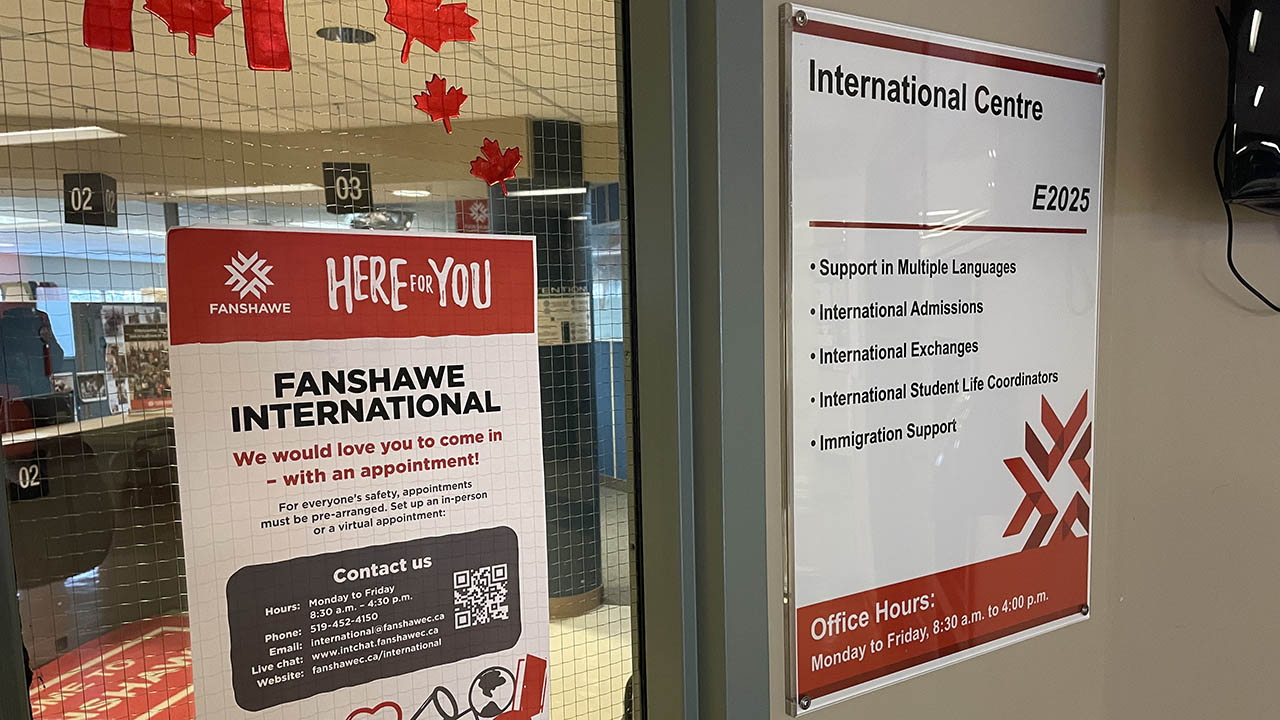The cost of being an international student
 CREDIT: HANNAH THEODORE
CREDIT: HANNAH THEODOREFor the education in Canada, international students pay around $8,000-$9,000 CAD for every half a year.
These days, the first expense for a foreign student in Canada starts with a hotel fee. When I first arrived in Canada, the coronavirus pandemic was at its height. I had to stay two weeks in isolation in a hotel, ordering food that was brought directly to the room. From the start, this was a struggle, as being a foreigner, you don’t know the system of payment, the fees, or the delivery specialties and it becomes a huge surprise when all of a sudden, the delivery person doesn’t bring you half of what you ordered.
Then, after 14 days, the student goes to their place of permanent residence. Everything gets paid in advance (a full year in advance for residences), or the first two months if you’re living off campus.
The first purely Canadian expense is a mobile phone card. Provider prices here are at least twice as expensive than the most expensive tariff in Ukraine, where I’m from. Then, if you have a working permit from the government, be ready to spend hours obtaining a SIN number.
The next expense is clothes. You can’t take all your autumn and winter clothes with you, so you have to buy them here. Firstly it will be autumn, but in some two weeks you need to think about winter. This is why it helps to find a job early, sometimes with the help of a temp agency.
If you have enough money, try to dress the way locals do and look for popular brands here. Vintage shops are popular and there you can find stylish things from the 90s or earlier for really reasonable prices. What is more, sales play a great role in the shopping process which is why it’s better to choose a popular shopping season like Black Friday.
Food in Canada is expensive. It’s better to buy products and cook everything yourself. As Canada is a multicultural country, there are a lot of shops with products from different places in the world. Maybe if you’re lucky, you will eat the same food as in your hometown.
When you are in Canada, one of the first things that you have to do is visit local fast food places. Tim Hortons is the most popular fast food cafe in the country. Even if a “double-double” is too strong and sugary, local doughnuts will be something you’ll surely like.
For the education in Canada, international students pay around $8,000-$9,000 CAD for every half a year. This is a huge sum of money for people from countries that are not as developed as North America or Western Europe. That’s why you should definitely search for work, even if you face rejection the first time. Search for those part-time opportunities until you find the one that suits your study schedule.
After watching videos and films, you’ll probably want to see the local beauties from the Great Lakes to Niagara Falls. You might even take a simple trip to Toronto, but as with all trips it helps to plan in advance.
The most impatient for the Christmas holidays dream of flying home, and this is also a considerable expense. Staying in Canada instead of going home might be the way to go if you want to experience real life.
Life in Canada is expensive, but it teaches you how to survive in the real world, so try your best to see it all and make some money while you’re here.
Editorial opinions or comments expressed in this online edition of Interrobang newspaper reflect the views of the writer and are not those of the Interrobang or the Fanshawe Student Union. The Interrobang is published weekly by the Fanshawe Student Union at 1001 Fanshawe College Blvd., P.O. Box 7005, London, Ontario, N5Y 5R6 and distributed through the Fanshawe College community. Letters to the editor are welcome. All letters are subject to editing and should be emailed. All letters must be accompanied by contact information. Letters can also be submitted online by clicking here.
















